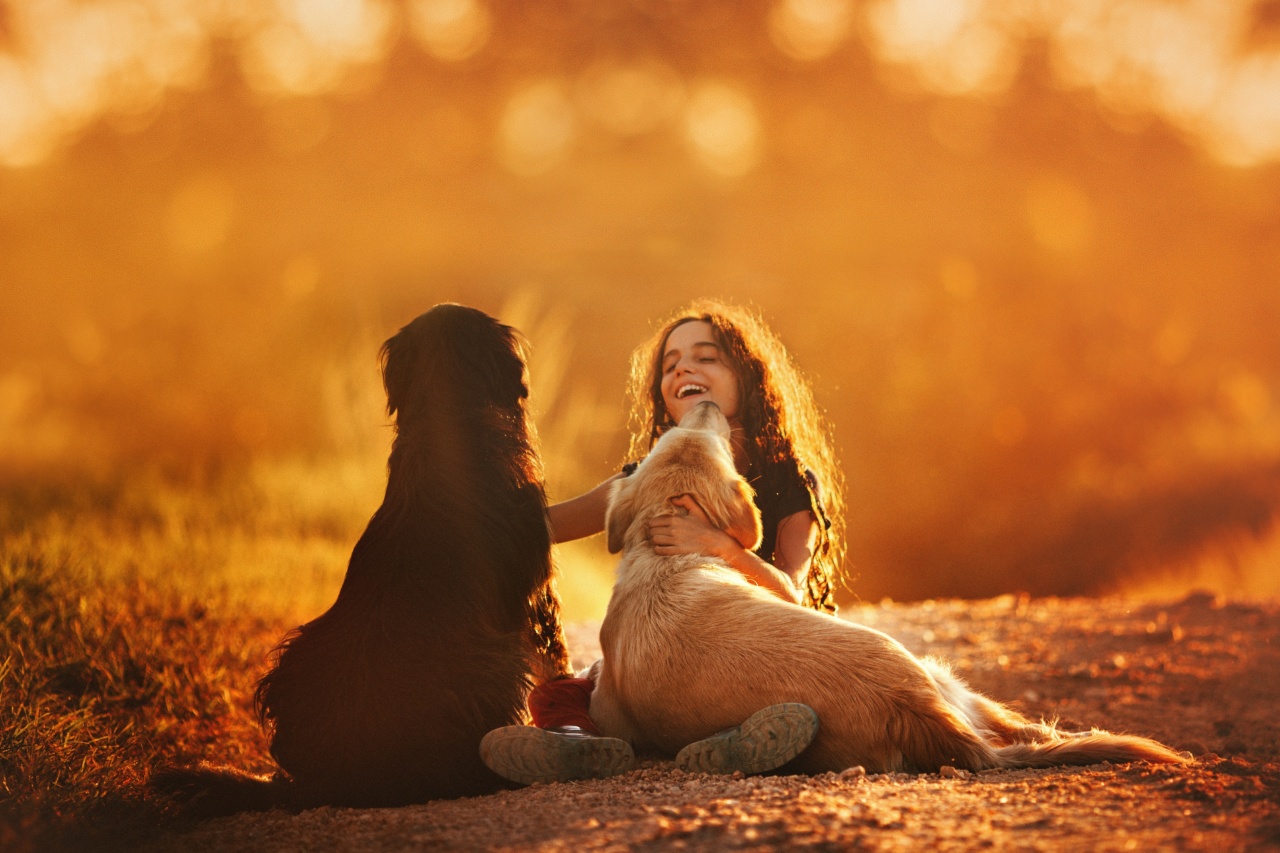Children with learning difficulties face unique challenges when it comes to education and social interaction. These difficulties can range from attention deficit hyperactivity disorder (ADHD) to autism spectrum disorder (ASD) and everything in between.
While traditional therapies and interventions can be effective, there is a growing recognition of the benefits of incorporating canine companionship into the lives of these children. Dogs have been shown to have a profound impact on the well-being and development of children with learning difficulties, providing support, comfort, and companionship in ways that humans often cannot.
The Therapeutic Benefits of Canine Companions
Research has consistently shown that interaction with animals, particularly dogs, can have a positive impact on mental health and well-being.
For children with learning difficulties, the presence of a canine companion can provide numerous therapeutic benefits:.
1. Emotional Support and Regulation
Children with learning difficulties often struggle with emotional regulation and managing stress. Canine companions can act as emotional anchors, offering comfort and support during challenging times.
The calming presence of a dog can help regulate emotions, reduce anxiety, and promote a sense of security and well-being.
2. Improved Social Skills
Many children with learning difficulties experience difficulties in social situations. Dogs can serve as icebreakers and facilitators of social interaction, making it easier for children to engage with their peers.
The non-judgmental nature of dogs allows children to practice social skills without fear of rejection or criticism.
3. Increased Motivation and Engagement
Children with learning difficulties often struggle with motivation and engagement in academic tasks. The presence of a canine companion can provide the much-needed motivation, making learning more enjoyable and rewarding.
Studies have shown that incorporating dogs into educational settings can lead to improved academic performance, increased attention, and enhanced motivation.
4. Enhancing Cognitive and Language Development
Interacting with dogs can stimulate cognitive development in children with learning difficulties. Dog-related activities, such as teaching tricks or giving commands, can enhance problem-solving skills, memory, and overall cognitive functioning.
Additionally, verbal communication with dogs can support and enhance language development.
5. Developing Empathy and Responsibility
Caring for a canine companion can teach children with learning difficulties important life skills, such as empathy and responsibility.
Taking care of a dog’s basic needs, such as feeding, grooming, and exercise, can instill a sense of responsibility and empathy towards others.
Choosing the Right Canine Companion
When considering a canine companion for a child with learning difficulties, it is important to choose the right breed and temperament. Some dogs are naturally more suited to providing support and companionship. Here are a few popular choices:.
1. Labrador Retrievers
Labrador Retrievers are known for their gentle and friendly nature, making them an excellent choice for children with learning difficulties. They are highly trainable, patient, and adaptable to various environments.
2. Golden Retrievers
Golden Retrievers are known for their intelligence, loyalty, and calm demeanor. They are often used as therapy dogs due to their ability to connect with and comfort individuals with special needs.
3. Beagles
Beagles are a small-sized breed known for their sociability and gentle nature. They can provide companionship and support, particularly for children with ADHD or anxiety disorders.
4. Collies
Collies are highly trainable and known for their intelligence and sensitivity. They can form strong bonds with children with learning difficulties and provide a calming presence.
5. Poodles
Poodles are highly intelligent and versatile dogs that can excel in various roles.
Their hypoallergenic coat makes them suitable for families with allergies, and their alertness and loyalty make them great companions for children with learning difficulties.
Building a Strong Bond
Establishing a strong bond between a child with learning difficulties and their canine companion requires time and patience. Here are a few strategies to help foster a strong bond:.
1. Training and Participation
Include the child in the training process. This not only helps the dog understand the child’s needs but also empowers the child and promotes a sense of accomplishment. Simple commands and tricks can be a great starting point.
2. Positive Reinforcement
Use positive reinforcement techniques to encourage desirable behavior from both the child and the dog. Rewarding good behavior with treats, praise, and affection helps build trust and strengthens the bond between the child and their canine companion.
3. Routine and Consistency
Establishing a routine can provide a sense of stability and security for both the child and the dog. Consistency is key in creating a safe and predictable environment, which is beneficial for children with learning difficulties.
4. Encouraging Responsibility
Guide the child in taking responsibility for their canine companion’s well-being. This can involve tasks such as feeding, grooming, and walking the dog.
Encouraging responsibility fosters a sense of ownership and enhances the bond between the child and their dog.
Conclusion
Canine companions can be a perfect fit for children with learning difficulties, offering emotional support, improved social skills, increased motivation, enhanced cognitive development, and opportunities for learning empathy and responsibility.
When choosing a canine companion, it is important to consider the breed and temperament that best suits the child’s needs. Building a strong bond requires training, positive reinforcement, routine, and encouraging responsibility.
The presence of a canine companion can make a significant difference in the lives of children with learning difficulties, providing them with a loyal and non-judgmental friend who will always be there to support and comfort them.






























